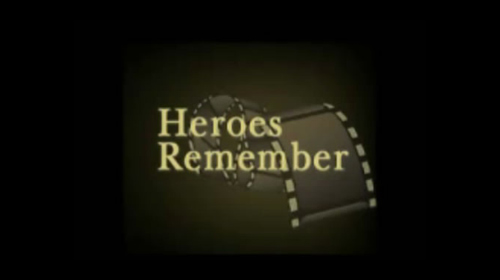Rats in the trenches
First World War Audio Archive
Rats in the trenches
Transcript
Hill 62 Memorial Belgium.
I woke up the next morning. You see, you’d go from house to house See there’s rows of houses and they’ve got to give one room. Every house had to give one room, because we were staying in a place the size of Moose Jaw, the size of Moose Jaw used to be, you know, like. We figured this little town was about the size ofCourtrai Memorial Belgium.
Moose Jaw... Bruay. And I woke up the next morning, you know.Le Quesnel Memorial Belgium.
There was, I think there was three fellows and the rest of us was in with them. I woke up and I says, “Gee whiz, I got the itch.” I said, “I sure itch.” Fellow says to me, he says, “You’re notGueudecourt Memorial France.
that, you’re lousy.” I said, “I’m not lousy.” “Well,” he said, “you sure as hell are now when you sleep with them three guys.” And from then on we were lousy. There is no fooling. You knowDury Memorial France.
what I mean. You couldn’t get it out of your clothes. Even the identification disks you had on, you know, with string, even theMonchy Memorial France.
threads of the string, well, you’d get eggs in that damn thing there. We used to change underwear and you’d get just as lousy when you’d get fresh underwear as you did when you... Same at Bruay there. We’d go up to the coal mines and used the showers,Passchendaele Memorial Belgium.
you know. The miners were at work, we’d use the showers. And they’d give you clean underwear. Just as lousy pretty near as the ones you took off after it’s all been washed. Well, everybodyMasnières memorial France.
had it. Civilians, they were all... but you could try to do the best you could yourself. I’ve seen us put creolin in our clothes, in our sheets, you know, put creolin. They’d leave youBourion Wood Memorial France.
tonight and go to the other guy but maybe he’d put some on and they’d all come back. No, but that’s true, that’s no fooling.Courcelette Memorial France.
You go in the trenches, you know, and you’re in there for seven days. Then you go back about a mile or so on rest and the other half of the battalion goes up for seven days. And you’d do theBeaumont-Hamel Memorial France.
same thing again, you’d go back again. Seven days, and you’re up at the line for a whole month and you don’t have your clothes off And the rats too, the rats was running over your feet. Boy you could, you’d have your bayonet on, you know, and you justSt. Julien Memorial Belgium.
think you’re going to stab that son of a gun, but no sir, they’re so doggone quick. You get within about that far from them but you’d never get them. That’s no fooling, that’s true.Canadian National Vimy Memorial France.
Rats in the trenches.Description
Mr. Featherstone describes a couple of pests which plagued the soldiers in France; lice and rats.
John Stephen “Jack” Featherstone
John Stephen “Jack” Featherstone was born in Oxridge, England, on September 29, 1898. His mother was unable to care for him, so he emigrated to Wolsley, Saskatchewan, at the age of twelve. He was a farm labourer and enlisted March 1, 1916, but being committed to care for the local preacher’s farm, couldn’t report until fall. Mr. Featherstone arrived at Bramshott camp in England, where he was selected for the shooting team. He won a marksmanship competition at Aldershot in June, 1917, and joined the 46th Battalion in November 1917, following Passchendaele. Mr. Featherstone describes action at Vimy and Amiens. Following the war, he returned to farming until 1922, when he joined the Canadian Pacific Railway as a fireman. Forty years later, Mr. Featherstone retired as an engineer and resided in Moose Jaw, Saskatchewan.
Meta Data
- Medium:
- Video
- Owner:
- Veterans Affairs Canada
- Duration:
- 2:32
- Person Interviewed:
- John Stephen “Jack” Featherstone
- War, Conflict or Mission:
- First World War
- Location/Theatre:
- Europe
- Branch:
- Army
- Units/Ship:
- 46th Battalion
- Rank:
- Private
- Occupation:
- Infantryman
Attestation
Related Videos
- Date modified:



